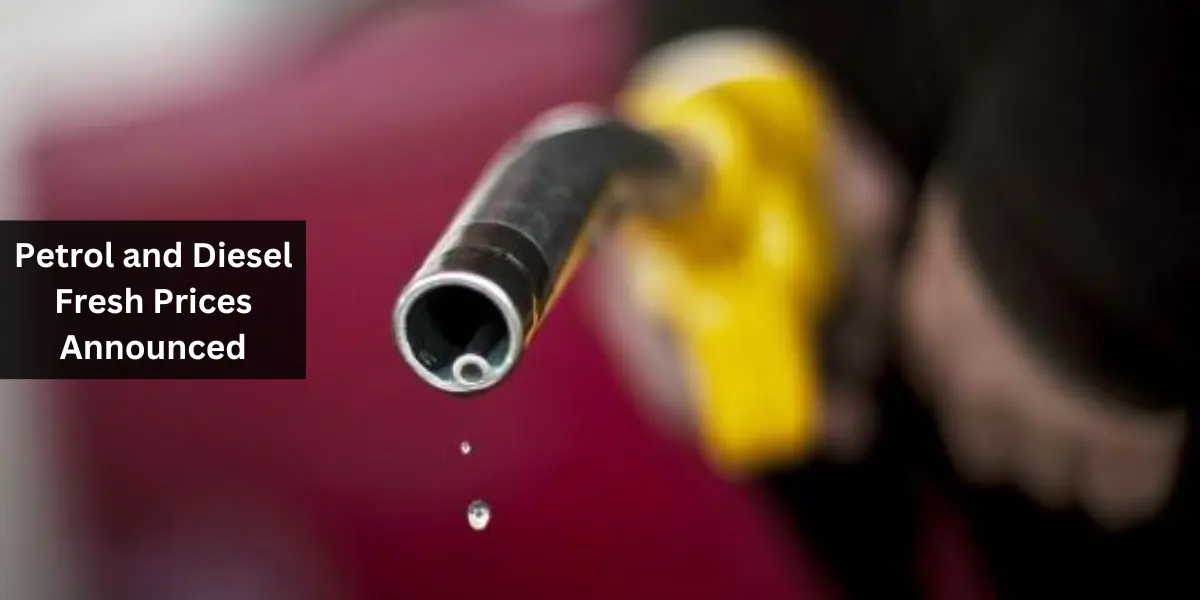In the ever-evolving landscape of our day by day lives, the assertion of sparkling petrol and diesel costs feels corresponding to the converting seasons—inevitable, impactful, and a subject of conversation across communities. With the cutting-edge update on fuel expenses, purchasers, commuters, and companies alike are recalibrating their budgets and plans. Let’s delve into the consequences of these new charges and explore how they might have an effect on us within the roads we traverse day by day.
The Latest on Fuel Prices: What You Need to Know
A Fresh Update
The announcement came just like the morning news, clean but expected. With fluctuations in the global oil marketplace, the costs of petrol and diesel were adjusted to mirror present day monetary realities. These adjustments are not simply numbers; they’re signs of a larger worldwide narrative, interwoven with tales of deliver, call for, and the relentless pursuit of balance.
Deciphering the Numbers
The new charges, effective at once, are more than mere figures. They represent the outcome of complicated equations regarding international oil fees, taxes, and subsidies. For the common purchaser, those numbers translate into the fee of commuting, the fee of goods, and the diffused changes in each day living.
How the Price Change Affects You
The Commuter’s Calculus
For the ones of us who greet the guidance wheel with sleepy eyes every morning, the fee exchange is more than economic—it is personal. It dictates the routes we choose, the frequency of our travels, and occasionally, the moments we steal for a roadside espresso.
The Ripple Effect on Daily Life
Beyond the travel, the fuel fee adjustment sends ripples across the floor of our daily costs. From the price of groceries added to our doorstep to the rate tag on a weekend getaway, the impact of gas prices is each broad and deep.
The Bigger Picture: Economic and Environmental Impacts
Navigating Economic Waters
The adjustment in petrol and diesel fees is a sail at the substantial ocean of our economy. It affects transportation expenses, impacts inflation rates, and once in a while, steers the course of policy selections. It’s a reminder that our character trips are a part of a bigger voyage.
A Green Consideration
In the shadow of the charge statement, there’s a greener question lurking: What does this mean for our environmental footprint? Each adjustment in gas fees also serves as a nudge, pushing us to do not forget more sustainable modes of transportation and strength consumption.
Strategies for Adapting to the New Fuel Prices
Budgeting for the Road Ahead
Adapting to new gasoline expenses way revisiting our budgets with a excellent-teeth comb. It’s about allocating a bit greater to our travel expenses and locating innovative ways to stretch a liter of fuel in addition down the street.
Exploring Alternatives
Now is probably the proper time to explore opportunity modes of transportation. Whether it is carpooling, public shipping, or the joy of biking, every option offers a chance to navigate the exchange in a manner it is each reasonably-priced and eco-friendly.
The Role of Technology in Fuel Consumption
Apps and Innovations
In our digital age, era offers gear to tame the tide of rising gas fees. From apps that discover the most inexpensive gas stations to automobiles that promise better gas efficiency, innovation is a steadfast ally in our adventure.
The Push for Electric Vehicles
The new gasoline expenses additionally reignite the conversation round electric motors (EVs). As we inch in the direction of a future powered via energy, each fee update might be a stepping stone toward cleanser, more sustainable transportation alternatives.
Looking Ahead: The Road to Resilience
Building a Fuel-Smart Future
Looking in advance, the undertaking and possibility lie in constructing resilience. It’s approximately groups coming together to proportion rides, corporations innovating for efficiency, and guidelines that pave the way for a extra sustainable future.
The Power of Preparedness
In the face of fluctuating fuel fees, preparedness is our maximum powerful tool. By staying informed, adjusting our conduct, and embracing alternate, we are able to navigate the new costs with self assurance and style.
Conclusion
The declaration of new petrol and diesel fees is a reminder of the interconnectedness of our lives, economies, and the environment. As we adjust to these changes, allow’s view them as opportunities—to reconsider our behavior, to innovate, and to transport towards a greater sustainable and resilient destiny. Together, we are able to turn the undertaking of fresh fuel charges right into a adventure of version and growth.
FAQs
How often do fuel fees alternate?
Fuel costs can exchange frequently, motivated by way of elements like global oil prices, government taxes, and subsidies. It’s important to stay up to date thru reliable information resources.
What can I do to reduce my gas expenses?
Consider carpooling, the use of public transportation, or exploring fuel-green routes for your commutes. Keeping your car well-maintained can also enhance gas performance.
Are electric powered automobiles a feasible alternative to petrol and diesel vehicles?
Yes, electric powered cars (EVs) are more and more feasible options, supplying lower running costs and environmental benefits. However, the suitability of EVs depends on your particular needs and the supply of charging infrastructure.
How do gasoline fees have an effect on the economy?
Fuel prices effect transportation costs, which in turn affect the rate of goods and offerings. High fuel fees can lead to elevated inflation and have an effect on monetary increase.
Can era assist in coping with the impact of gas price modifications?
Absolutely. From gasoline fee comparison apps to innovations in automobile technology, there are various methods technology can assist mitigate the impact of gas charge adjustments and enhance fuel performance.

